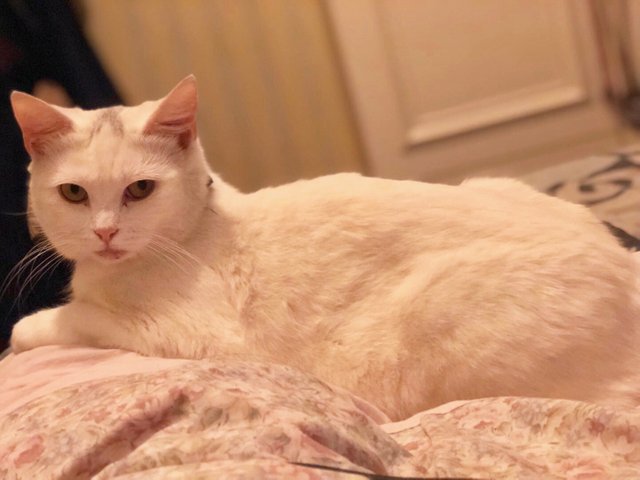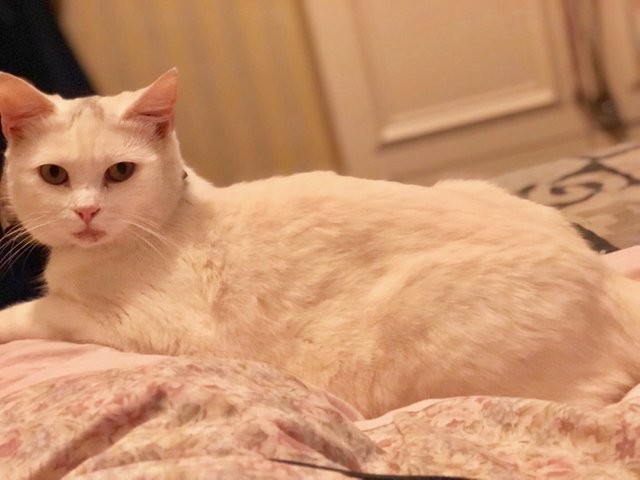Risks of poisoning.

Did you know that your cat can get poisoned whilst roaming out in the wild?
Cat's love exploring and take interests to dark and small places where danger can lurk in the form of toxic substances. Cat's can occasionally be poisoned by eating or drinking poison by indirect absorption from eating a poisoned animal, or, more commonly, by licking poison deposited on the fur or paw pads.
Worryingly, these poisonous substances can be absorbed through the skin itself, particularly through the paw pads.
For a start, you should keep your household cleaning agents in the cupboards with cat proof doors. These include things like anti freezes and weed killers. Remember to always read the label of such products carefully. If there are warnings of danger of their contents to children, then there is a fairly large chance that they are also bad for you cat as well.
A cat isn't likely to choose a bottle of paint or paint stripper but it could easily knock over a bottle containing some. When this toxic substance is spilled, the cat is likely to tread on it. Make sure you mop this up thoroughly.
If you're decorating, then make sure you keep the cat out of the room. Even the smell of the decorating materials can affect some cats.
Back to the garden..
Some of the preparations used to keep garden pests at bay are particularly lethal, and to make matters worse, they are usually spread all around the garden. Your cat might eat the bird that ate the slug that took the slug pellet, or it might lick it's pads onto which a slug pellet has stuck on. Obviously you can't control what other people choose to use in their gardens, but you can choose what you use in yours. Always check the labels and opt for the environmentally friendly varieties. Sometimes they will carry warnings regarding domestic pets, and close contact with them can cause some negative effects. Stay alert.
That said, your cat possess incredible instinct for survival and will generally stay away from plants which are poisonous to them. Remember, cat's do eat grass and other herbage for minerals and vitamins. Outdoor cats who are free to choose their own greenstuff rarely make the mistake of taking a mouthful of toxic plants. If in doubt, you can purchase seeds of grasses that are beneficial to cats, and these can even be grown indoors.

To listen to the audio version of this article click on the play image.

Brought to you by @tts. If you find it useful please consider upvoting this reply.
Yes, you have to be very careful.
One of the cats in our household (some years ago) started to feel poorly, so we took her to the vet. There was nothing obviously wrong... but she was an indoor-outdoor cat and would like to wander around the neighborhood.
After spring turned to summer, she started to be her old self. The vet theorized that she would drink from puddles and streamlets downslope from people who were fertilizing their garden, and it was just enough poison to make her feel sick, but not really give her an infection or kidney problems. As summer cam and the dry season ended those drinking sources, she got well by herself.
But yes, you do have to be very careful.
=^..^=
Congratulations! Your post has been selected as a daily Steemit truffle! It is listed on rank 2 of all contributions awarded today. You can find the TOP DAILY TRUFFLE PICKS HERE.
I upvoted your contribution because to my mind your post is at least 21 SBD worth and should receive 47 votes. It's now up to the lovely Steemit community to make this come true.
I am
TrufflePig, an Artificial Intelligence Bot that helps minnows and content curators using Machine Learning. If you are curious how I select content, you can find an explanation here!Have a nice day and sincerely yours,

TrufflePig